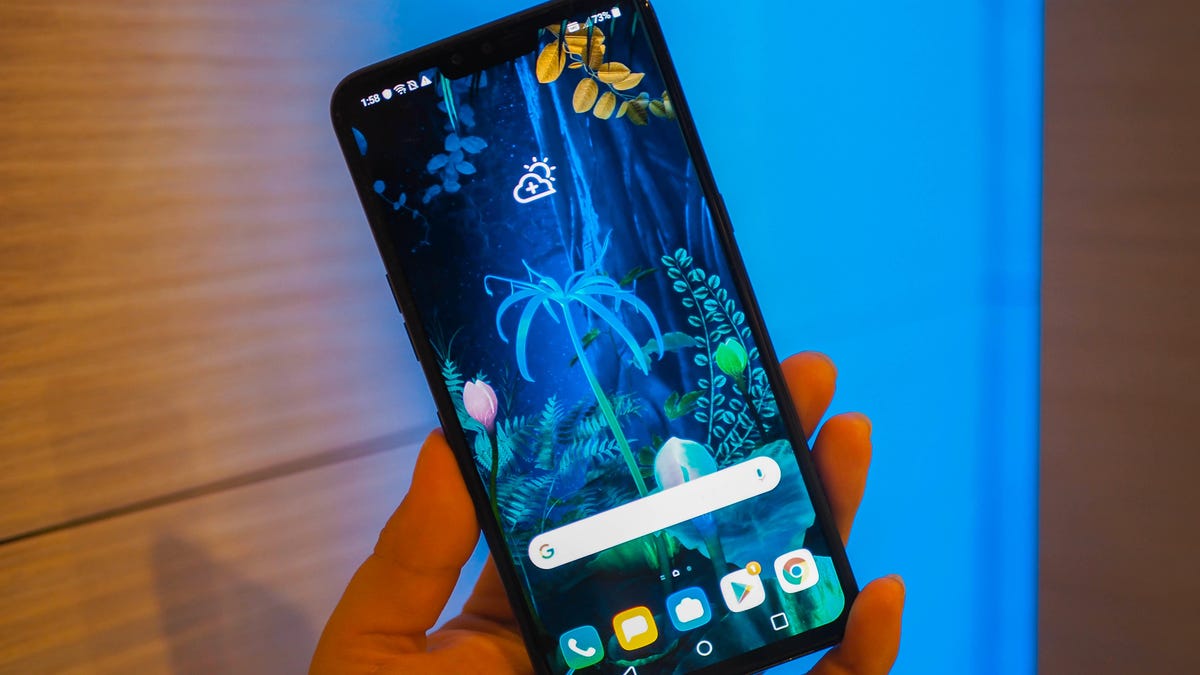First Sprint 5G devices go on preorder Friday, available May 31
There is still no exact launch date for the 5G network, but we at least now know when the first devices will arrive.

LG's V50 ThinQ 5G.
We still may not know when Sprint's 5G network will be turned on, but we know where it'll happen first. And now we know when its first 5G devices will be available.
On Thursday the company announced that it will begin taking preorders for its first 5G phone and hotspot, LG's V50 ThinQ 5G phone and the HTC 5G Hub hotspot, this Friday.
The LG phone will be available for $1,152 at retail while the HTC 5G Hub will cost $600 if purchased outright. Sprint will offer monthly payment options for both devices, bringing the LG phone down to a discounted $24 per month when purchased on the company's 18-month Sprint Flex program and the HTC Hub to $12.50 per month when purchasing that device on installment pricing.
Both devices will ship May 31. While Sprint hasn't given an exact timing date for when the network will be turned on, the company has previously said that it would turn on 5G in Atlanta, Dallas and Kansas City in May, making it possible the nation's fourth-largest carrier will wait until the last minute to reach that deadline. Houston will also get 5G in May.
Five other cities -- Chicago, New York, Los Angeles, Phoenix and Washington, D.C. -- are set to get the network in the first half of 2019.
Chicago was initially on the list of the first four 5G cities, with Houston in the second group, but Sprint seems to have decided to swap the two for the first wave of deployment.
HTC's 5G Hub is a hotspot and runs full Android.
If you want to take advantage of Sprint 5G, you'll need the company's Unlimited Premium plan for phones . At $80 for a single line it's $20 pricier than the company's Unlimited Basic offering. In addition to 5G, the "Premium" plan also includes Amazon Prime , 100GB of LTE hotspot data and a Tidal HiFi subscription.
Those who want to use the Hub will pay $60 per month for 100GB of 5G data, after which it will be slowed to painfully slow 2G speeds, so those looking to swap out their cable for 5G may want to keep that cap in mind.
Similar to Samsung's Galaxy S10 5G, which just launched on Verizon's 5G network Thursday, the LG V50 ThinQ 5G packs a Qualcomm Snapdragon 855 processor, a bevy of cameras -- three on the back, two on the front -- and a large OLED display (6.4-inches compared to Samsung's 6.7-inch S10 5G). The phone will come with 6GB of RAM and 128GB of storage (expandable via microSD) as well as a standard 3.5mm headphone jack.
Similar to the other carriers Sprint has said that it will also carry the Galaxy S10 5G this year.
The HTC 5G Hub, meanwhile, will aim to take on home broadband allowing users to connect up to 20 devices over WiFi. A 5-inch display on the device will display network details, with an ethernet port available on the back for hardwire connection. A 7,660 mAh battery will allow users to turn the Hub into a mobile hotspot.
The news of Sprint's 5G network comes a little over a week after the company's latest earnings, where it reported a $2.2 billion loss for its fiscal fourth quarter. The news also comes as Sprint faces increased regulatory scrutiny over its proposed $26 billion merger with T-Mobile.
Whereas AT&T and Verizon have been announcing additional cities for their respective 5G rollouts, Sprint has been quiet. In its most recent earnings CEO Michel Combes stressed the need for the merger and the technological and financial benefits a partnership with T-Mobile would bring.
"We're hopeful to complete our merger with T-Mobile, which will allow the combined company to have the breadth and the depth of spectrum to provide a truly consistent national-wide 5G experience," Combes said. "Without additional low-band spectrum, we will face challenges to provide customers with consistency or coverage comparable to that of the two big carriers."

